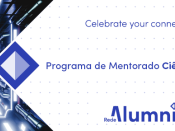Por Brandon Vaidyanathan (The Catholic University of America).
Scientists are often seen as the epitome of unemotional, dispassionate rationality. Since the Romantic era, critics have accused science of a reductionism that strips away the beauty and mystery from reality. By contrast, prominent Nobel Prize winners and celebrity scientists in recent years have waxed eloquent about science as a source of beauty and awe to rival art. More recent critics have argued that the pursuit of beauty in science is not just pervasive but also misleading and detrimental to scientific progress, because it serves as a source of cognitive bias. What we have been lacking so far is an empirical assessment of the meaning and role of beauty in science based on the actual experiences and beliefs of scientists. To address this deficit, our team conducted the world’s first international study on the role of aesthetics in science. Our work entailed nationally representative surveys with physicists and biologists in the US, UK, Italy, and India (n = 3442), as well in-depth interviews with these scientists (n = 215). Our research finds three main types of beauty in science: (1) sensory beauty, (2) useful beauty, and (3) the beauty of understanding. Encountering sensory beauty in nature and data leads many to pursue scientific careers in the first place. When it comes to useful beauty (or beauty as heuristic), scientists are quite divided: most scientists do not see beauty as a reliable guide to truth, nor do they see it as a liability for scientific progress; rather, they are more circumspect and see beauty as provisionally useful. Finally, the beauty of understanding—the pleasure that comes from grasping the sense of hidden order or inner logic of systems—is most pervasive among scientists, and is what many scientists believe makes their work worthwhile, despite the many challenges they face. Our findings lead us to conclude that science is fundamentally an aesthetic quest—a quest for the beauty of understanding. Since this kind of aesthetic pleasure requires intellectual humility and a willingness to change one’s mind, we argue that the world sorely needs the cultivation of the beauty of understanding. Indeed, this aesthetic sensibility is one of the most important things we can learn from the scientific community in our polarized times.
Bio: Dr. Brandon Vaidyanathan is Associate Professor and Chair of the Department of Sociology at The Catholic University of America. He holds a Ph.D. in Sociology from the University of Notre Dame. His research examines the cultural dimensions of religious, commercial, and scientific institutions, and has been widely published in peer-reviewed journals. He is the author of Mercenaries and Missionaries: Capitalism and Catholicism in the Global South (Cornell University Press, 2019) and co-author of Secularity and Science: What Scientists Around the World Really Think About Religion (Oxford University Press, 2019).






















